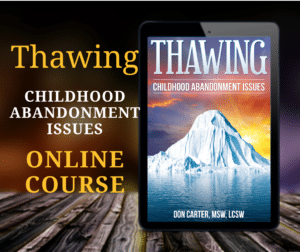
Child Development Stages Preschooler
The child development stages preschooler years are between the ages of 3.5 to 6-7 years old. This is during what Massey calls the Imprint Period, otherwise known as the “formative years”.
Preschooler; aka the Phallic Stage [3-7 y.o.]
Initiative vs. Guilt

During this stage preschoolers are impressionable. They need permission and encouragement to explore — always within safe limits of course. Over-protective or fearful parents can send a message that it is not okay — and, in fact, even dangerous to explore the world. They do this because they “are just making sure that their child doesn’t get hurt”.
Frequent harsh criticism from parents who demand that their children “behave themselves at all times” and “don’t get into things” can inhibit their natural curiosity and lead to excessive guilt.
Enough guilt can turn to toxic shame. John Bradshaw explains the difference between guilt and shame this way…Guilt says “I MADE a mistake. Toxic Shame says “I AM a mistake“.
Also, since this is the imprint period, the lessons learned become deeply ingrained in the neural networks on “how things are done” in life through the child development stages preschoolers. For example, rigid rules can translate into all-or-nothing, black-or-white functioning later on in the life of the child.
Frequent criticism can become a way of seeing self or others. This leads to excessive self-criticism and/or criticism of others — either way an unhealthy existential position that would need to be confirmed over and over again in the child’s life. In the case of the over-protective parent, there is an interpersonal transfer of anxiety from parent to child. In the case of the overly rigid and critical parent, it’s an interpersonal transfer of shame.
In essence, then, the parent subconsciously passes on their own anxiety and or shame to the child. Notice I said subconsciously — Most parents love their kids and want the best for them. They would never consciously choose to put that burden on their child.
That being said, if we carry these things within, unattended, they will leak out of every pore of our body. And kids in the imprint period are like sponges — in these early child development stages preschoolers soak up everything. Our non-verbal behavior is a much more powerful teacher than words could ever be for little kids.
Most over-protected children who have accumulated anxieties and fears from their parents tend to become passive, indecisive, and timid. Or they may have a reaction formation and swing into the opposite direction by behaving aggressively and developing an unhealthy fearlessness.
In the course of child development stages preschoolers who have been frequently criticized by rigid, controlling parents tend to become Internalizers and take the blame for everything that goes wrong — unless they over-identify with the critical parent in which case they mimic their behavior becoming an Externalizer who is over-critical of others.
Self-Assessment
Unmet needs in the area of child development stages preschooler can be observed in present-day symptoms. For each of the following statements assign a rank between 10 (High) and 1 (Low).
- ___ I focus on things about myself that I do not like.
- ___ If I do one thing wrong at work, I obsess about that one thing and discount any other achievements I have made during that day.
- ___ I spend a great deal of time worrying about what others think of me.
- ___ My internal dialog is made up of self-critical statements.
- ___ I am very judgmental of others.
- ___ I have a hard time accepting or tolerating the imperfections of my friends and coworkers.
- ___ I dislike people who are too fat or too skinny.
- ___ If I’m at a party, I feel more secure if I feel that I look better than most of the people there.
- ___ If something goes wrong at work, I feel responsible even when it couldn’t possibly be my fault.
- ___ If a store clerk is rude to me, I assume I must have done something wrong.
- ___ I believe it is conceited to say positive things about myself.
- ___ If a friend says he or she will meet me and is late, I refuse to make plans with that person again.
- ___ If I make a mistake while participating in a new activity, I never engage in that activity again.
- ___ If I ask someone to do me a favor and am refused, I never ask again.
- ___ When I look at my body in the mirror, I focus on what I want to change.
- ___ I have sex with someone because I do not know any other way to feel close.
- ___ I have sex because I am angry or sad and I want to get away from those feelings.
- ___ I am afraid to relax and let someone else be in charge because I fear something will go wrong and I will be at fault.
- ___ It is easier to do a task myself than ask someone else to do it. He or she would not do it the way I want to be done anyway.
- ___ I feel that if I don’t do it, no one will.
- ___ I’m afraid to ask about something I don’t understand because I’m afraid others will think I’m stupid.
- ___ I dislike it when others ask irrelevant questions.
- ___ I have to understand how to do something immediately or else I lose interest.
- ___ I refrain from asking people questions that are too personal.
If You have significant symptoms here, You may benefit from Don’s Thawing Childhood Abandonment Issues Online Course





